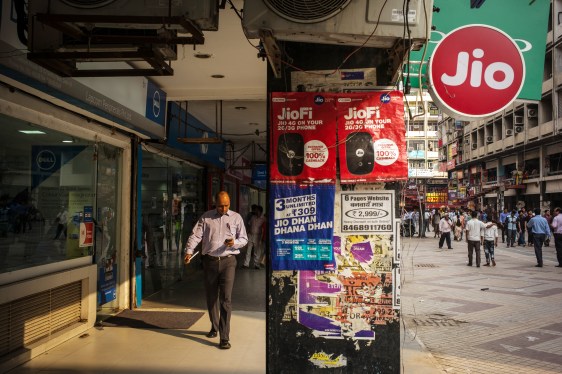VPN Apps Removed from Indian App Stores Following Government Intervention
More than half a dozen VPN apps, including Cloudflare’s widely used 1.1.1.1 app, have been removed from India’s Apple App Store and Google Play Store following intervention from government authorities.
Background on the Issue
The Indian Ministry of Home Affairs issued removal orders for the apps, according to a document reviewed by TechCrunch and a disclosure made by Google to Lumen, Harvard University’s database that tracks government takedown requests globally. Among the affected apps are Hide.me and PrivadoVPN.
Details of the Removal Orders
A communication from Apple to one of the affected developers, seen by TechCrunch, cited a ‘demand’ from the Indian Cyber Crime Coordination Centre (IC3), part of the Ministry of Home Affairs, which deemed the developer’s content to contravene Indian law. The IC3 is responsible for coordinating efforts between government agencies and private sector organizations to combat cybercrime in India.
India’s Regulatory Framework for VPN Apps
The removal orders mark the first significant implementation of India’s 2022 regulatory framework governing VPN apps. The rules mandate that VPN providers and cloud service operators maintain comprehensive records of their customers, including names, addresses, IP addresses, and transaction histories, for a five-year period. This stringent requirement has prompted pushback from major industry players.
Reactions from Industry Players
Leading brands like NordVPN, ExpressVPN, Surfshark, and Proton VPN have voiced significant reservations about the rules. Several of these companies announced plans to withdraw their server infrastructure from India in response to the regulations. While NordVPN, ExpressVPN, and Surfshark continue to maintain services for Indian customers, they have stopped marketing their apps in the country.
Impact on Users
The removal of these VPN apps from app stores may impact users who rely on them for secure internet browsing. The affected apps are no longer available for download from the Apple App Store or Google Play Store.
Government Response
The Ministry of Home Affairs, as well as Apple and Google, did not respond to requests for comment regarding the removal orders. It remains unclear how these regulations will affect the availability of VPN services in India.
Industry Concerns and Criticisms
Critics argue that the new regulations are overly broad and may infringe on users’ right to online privacy. The stringent record-keeping requirements have sparked concerns among industry players, who worry about the impact on their business operations and the security risks associated with storing sensitive user data.
Consequences of Withdrawal from India
Several VPN providers have announced plans to withdraw their server infrastructure from India in response to the regulations. This may limit users’ access to certain online services and content, as well as raise concerns about data sovereignty and national security.
Alternatives for Indian Users
For users who rely on VPN services, alternatives such as Tor or other VPN apps that are not affected by the regulations may be available. However, these options may have their own limitations and risks associated with them.
Global Implications
The regulatory framework governing VPN apps in India has global implications, particularly for companies operating in multiple jurisdictions. The enforcement of these regulations highlights the need for international cooperation on issues related to online security, data protection, and digital governance.
Key Players Involved
- Indian Ministry of Home Affairs
- Cloudflare (developer of 1.1.1.1 app)
- Apple (operator of App Store)
- Google (operator of Google Play Store)
- NordVPN, ExpressVPN, Surfshark, and Proton VPN (affected VPN providers)
Timeline
2022: India enacts regulatory framework governing VPN apps
[Current date]: Removal orders issued for affected VPN apps from Indian app stores
Conclusion
The removal of popular VPN apps from Indian app stores marks a significant development in the ongoing debate about online security, data protection, and digital governance. As governments around the world increasingly regulate the online landscape, the impact on users, companies, and economies will continue to be felt.




